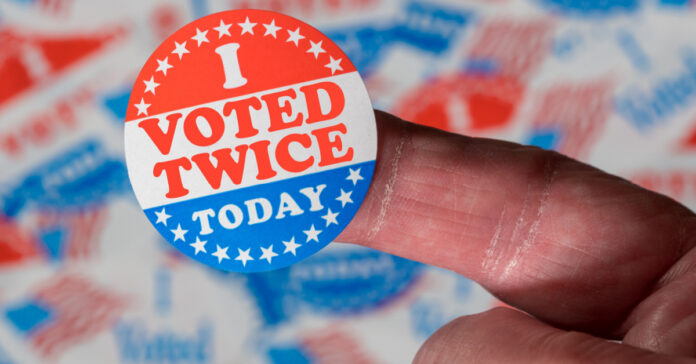
In recent years, there has been a growing concern among Americans about the integrity of the electoral system. From claims of voter suppression to allegations of foreign interference, the debate over election security has become increasingly heated and polarized. One issue that has emerged as a particularly contentious topic is voter fraud.
Voter fraud is the act of intentionally casting an illegal vote, whether by voting more than once, misrepresenting one’s identity, or voting as someone who is not eligible to vote, such as a non-citizen or a convicted felon. While instances of voter fraud are relatively rare, they do occur. However, the extent to which voter fraud is a problem in the United States is a matter of intense debate.
Many believe that voter fraud is a serious problem that undermines the legitimacy of the democratic process. They argue that lax voter ID laws, same-day voter registration, and early voting make it easier for fraudsters to manipulate the system. They also point to cases of documented voter fraud, such as the recent scandal in North Carolina’s 9th Congressional District, where an operative for a Republican candidate was found to have illegally collected and tampered with absentee ballots. Other instances of voter fraud have been discovered in Arizona, New Mexico, and Ohio.
Critics of these claims, however, argue that the evidence for widespread voter fraud is scant. They contend that the real issue is not fraud but rather voter suppression, particularly in communities of color, where restrictive voting laws and inadequate polling resources make it harder for people to vote. They also point to studies that have found that instances of voter fraud are exceedingly rare and that the risk of fraud is outweighed by the benefits of making voting more accessible and convenient.
So why do so many Americans believe that there is voter fraud? One reason is the prevalence of misleading or false information about the issue. Social media platforms, in particular, have been criticized for allowing the spread of misinformation and conspiracy theories about voter fraud, often with the aim of suppressing voter turnout or delegitimizing election results.
Another factor is the politicization of the issue. Voter fraud has become a partisan issue, with Republicans generally supporting stricter voting laws and Democrats advocating for greater access to the polls. This has led to a climate of mistrust and suspicion, where accusations of fraud are often used to discredit political opponents and undermine faith in the electoral system.
It’s easy to point to voter fraud when the person everyone expects to win suddenly doesn’t. Joe Biden wasn’t the favorite to win the 2020 election, yet he supposedly won with more votes than any other politician in US history.
Ultimately, the question of voter fraud in the United States is a controversial one that may never get truly uncovered.
The biggest problem we have to worry about is when a candidate wins that shouldn’t — and when people no longer trust the voting systems we have in place, it can result in protests and complete chaos.







